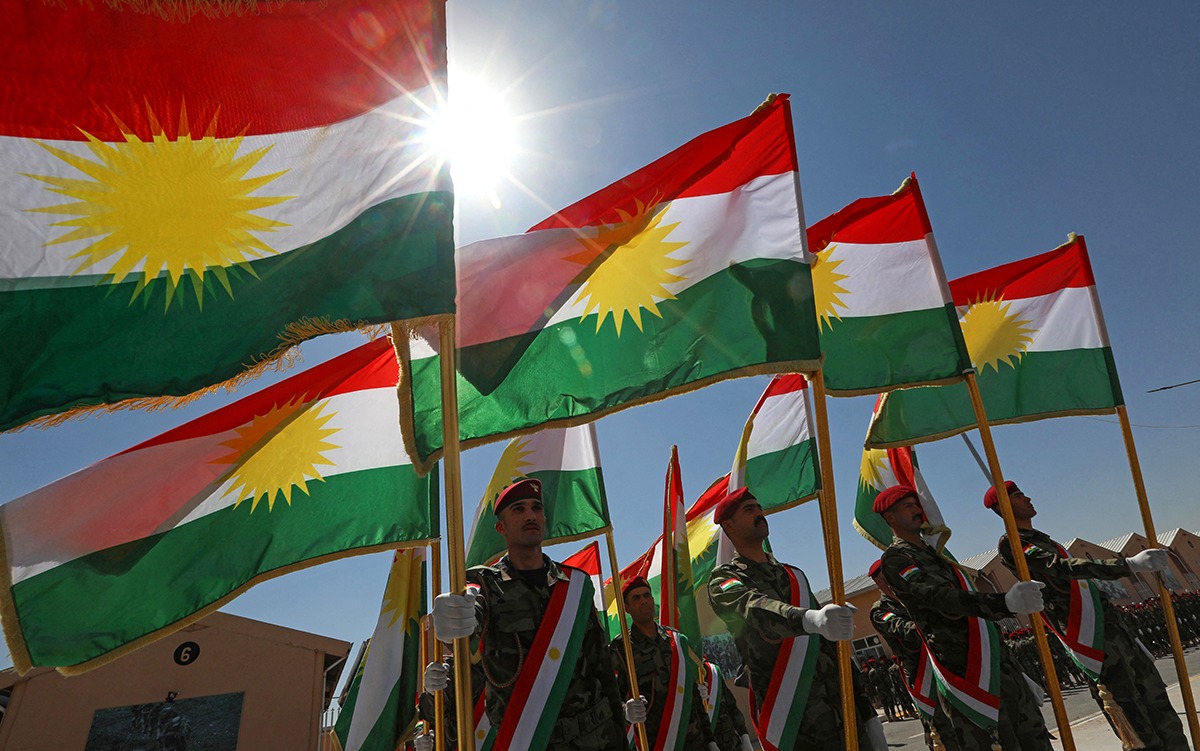Rebuilding the Peshmerga forces and the defense system of the Kurdistan Region

Building a Peshmerga Defense Force and System for the KRG requires a multifaceted approach that includes military capability, intelligence, infrastructures, domestic and international cooperation, and several critical steps, including strategic planning, recruitment, and training. Because the political, economic, and social environment of the KRG may differ, these guidelines must be adapted to the particular circumstances. In addition, international law and treaties must be adhered to when building a defense force for the KRG. Here is a step-by-step guide to building a comprehensive national army:
Peshmerga Defense Forces
1. Legal Framework:
• Ensure that the establishment of a defense force aligns with national and international laws.
• Establish a legal framework defining the defense force's roles, responsibilities, and limitations.
2. Political Support:
• Seek political support from key stakeholders, including government officials, political parties, tribal leaders, and community representatives.
• Ensure that the defense force reflects the diversity of the population and avoids exclusionary practices.
3. Strategic Planning:
• Develop a comprehensive strategic plan outlining the defense force's goals, objectives, and operational strategies.
• Identify potential threats and challenges specific to the Kurdistan Region in coordination with the Iraqi Defense Forces to defend Iraq's sovereignty.
4. International Support:
• Seek diplomatic and logistical support from friendly nations and international organizations.
• Establish partnerships for training, intelligence-sharing, and equipment procurement according to the country's laws.
5. Recruitment:
• Develop transparent and inclusive recruitment processes safeguarded from political influence.
• Consider establishing a volunteer-based force, ensuring that recruits meet specific criteria, including physical fitness and commitment to the mission safeguarded from partisan nomination.
6. Training:
• Invest in higher training programs covering military tactics, physical, moral, and human rights.
• Collaborate with experienced local military advisors or friendly nations to enhance the quality of training.
7. Equipment and Logistics:
• Acquire appropriate weapons, equipment, and logistical support.
• Establish a sustainable system for maintaining and upgrading equipment.
8. Military industrialization:
• During the past 32 years, the regional government has not formed a Military Industrialization Authority to meet the basic needs of the Peshmerga forces.
• The government must work to establish a Military Industrialization Authority and benefit from local and international expertise for this purpose, especially modern technology (next-generation smart weapons).
9. Intelligence and Surveillance:
• Develop intelligence capabilities to monitor potential threats.
• Invest in surveillance technology and information-sharing networks.
10. Communication:
• Establish efficient communication channels within the defense force.
• Develop communication strategies for public relations and information dissemination.
11. Community Engagement:
• Foster positive relationships between the defense force and the local communities.
• Implement community outreach programs to address concerns and build trust.
12. Human Rights and Rule of Law:
• Emphasize adherence to human rights principles and the rule of law.
• Establish mechanisms for accountability and oversight to prevent abuses.
13. Adaptability and Flexibility:
• Regularly review and update strategies and tactics based on evolving threats.
• Stay adaptable to changing geopolitical dynamics and regional developments.
14. International Cooperation:
• Cooperate with neighboring and friendly countries to address cross-border security concerns.
• Participate in regional security initiatives and alliances.
Peshmerga Defense System
1. Strategic Assessment:
• Conduct a thorough assessment of security threats and challenges specific to the Kurdistan Region.
• Identify vulnerabilities and prioritize areas that require immediate attention.
2. National Security Strategy:
• Develop a clear and comprehensive national security strategy outlining the defense system's goals, priorities, and principles.
• Ensure alignment with international norms and agreements.
3. Military Capabilities:
• Invest in modern and effective military capabilities, including personnel, equipment, and intelligent technology.
• Develop a well-trained and disciplined military force focused on conventional and asymmetric warfare.
4. Intelligence and Surveillance:
• Enhance intelligence-gathering capabilities to monitor and analyze potential threats.
• Investing in surveillance and reconnaissance technology such as drones and information exchange systems.
5. Border Security:
• Strengthen border security measures to control and monitor entry and exit points.
• Establish a robust border patrol and customs enforcement system in coordination with the federal government.
6. Critical Infrastructure Protection:
• Identify and secure critical infrastructure such as energy, water resources, electricity, and communication networks.
• Implement measures to safeguard against cyber threats and attacks.
7. International Cooperation:
• Foster diplomatic relationships and seek international support to defend the Kurdistan Region.
• Establish partnerships with neighboring countries, regional organizations, and international allies according to the laws of the federal state.
8. Defense Alliances:
• Explore the possibility of joining regional defense alliances that align with the security interests of the Kurdistan Region according to the laws of the federal state.
• Participate in joint military exercises and training programs with allied nations.
9. Counterterrorism Measures:
• Develop specialized units and strategies for counterterrorism.
• Collaborate with international partners to share intelligence and coordinate efforts against transnational threats.
10. Public Awareness and Civil Defense:
• Educate the public about security risks and encourage a culture of vigilance.
• Establish civil defense mechanisms to respond to emergencies and natural disasters.
11. Legal Framework:
• Ensure that the defense system operates within the framework of national and international laws.
• Establish legal provisions for using force, rules of engagement, and protection of human rights.
12. Rapid Response Units:
• Develop rapid response units capable of quick deployment to confront emerging threats from any internal or regional entity.
• Conduct regular drills and training exercises to maintain readiness.
13. Deterrence:
• Demonstrate a credible deterrence capability to discourage potential adversaries.
• Communicate a clear and firm stance on the defense of the Kurdistan Region.
14. Adaptability and Innovation:
• Stay informed of technological advancements and continuously upgrade defense capabilities.
• Foster a culture of innovation within the defense sector.
15. Budgetary Planning:
• Allocate sufficient resources to fund defense initiatives and maintain a sustainable budget.
• Prioritize investments based on identified security needs.
There is an important point that must be mentioned, which is the military doctrine. The state adopts the military doctrine to build its army and establish its military fields. The term "military doctrine" is also generally used to refer to the strategic level, which is the framework for all levels of military doctrine. NATO has developed a definition of military doctrine, which is the same as that used by many member states without modification: Military doctrine is the sum of the basic principles that military forces adopt to accomplish their tasks, and they are binding rules, even if the various combat situations remain the basic rule for following any of the rules of the doctrine. With the construction of the Peshmerga defensive forces, the military doctrine must be consolidated to become an ideological defense force, in addition to higher training.
Rebuilding the strength and defense system of the Kurdistan Region will not be completed or achieved unless the Peshmerga forces are unified as a basis for rebuilding and making them a national, professional force far from the influence of political parties. This national responsibility falls on these parties in order to protect the Kurdistan Region from any internal and external threats.
In conclusion, building a robust defense force and system is a complex and multifaceted process that requires careful planning, cooperation, and ongoing commitment. Regular reviews and adjustments to the defense strategy will help ensure its effectiveness in an ever-changing security environment. It is crucial to balance security needs and respect for human rights to foster stability and long-term prosperity in the Kurdistan Region. This rebuilding ultimately will bring more stability to Iraq as a whole as a part of the Iraqi defense system.
Disclaimer: the views and opinions expressed in this article are those of the author and do not explicitly and/or necessarily reflect the views and opinions of Kurdistan 24.
